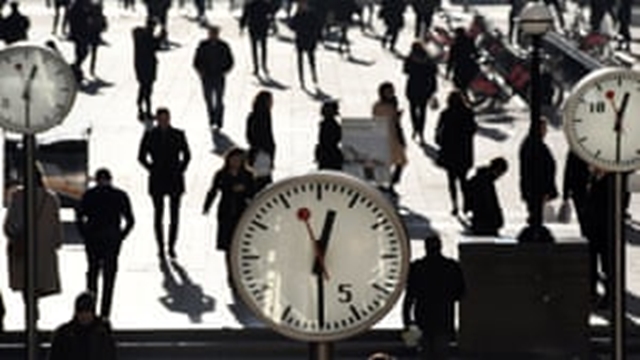FT Online
Published:2019-07-10 23:39:27 BdST
Britain's ethnic pay gap: workers of Bangladeshi heritage paid least
Workers of Pakistani or Bangladeshi heritage have the lowest median hourly pay of any ethnic group, in the latter case earning 20.1% less than white British workers, the first official statistics on the subject show, reports the Guardian.
The analysis by the Office for National Statistics (ONS) shows significant gaps remain even when education and occupation are taken into account, particularly for those born outside the UK.
London, which has the highest proportion of people classified as being in an ethnic minority group, had the largest pay gap between white and ethnic minority groups, at 21.7%
The median pay of white British workers last year was £12.03 an hour compared with £9.60 for people of Bangladeshi ethnicity and £10.00 for those of Pakistani ethnicity – groups that also had the lowest employment rates: 58.2% for Pakistanis and 54.9% for Bangladeshis.
Dr Zubaida Haque, the deputy director of the Runnymede Trust race equality thinktank, said: “The key message is your race still dictates how much you get paid in this country. It goes against our values of social mobility and equality of opportunity. The problem is that as well as getting companies to publish the gap you have to legally ask them to publish plans as to how they are going to close that gap. Otherwise, to be honest, nothing’s going to happen.”
Haque said she had reservations about the ONS’s methodology but welcomed the fact it had addressed the issue and urged the government to swiftly implement mandatory ethnic pay gap reporting, as mooted by Theresa May last year.
White workers did not have the highest median hourly pay, with employees of Chinese, Indian or mixed or multiple ethnicity all having higher rates, although this was not the case for Chinese or Indian workers born outside the UK.
People aged 16 to 30 from ethnic minority groups tended to have narrower pay gaps than older ethnic minority groups. For instance, the difference for the Bangladeshi ethnic group compared with white British workers was 3.1% among 16- to 30-year-olds but 27.9% for those over 30.
The ONS said this could mean second-generation migrants were performing better than their parents in terms of pay or it could point to earnings progression varying between different ethnic groups.
Women in the Pakistani and Bangladeshi ethnic groups were significantly less likely to be in the labour force than those in other ethnic groups. The ONS suggested this could be a result of “cultural differences” as 38.1% of women from a Bangladeshi ethnic group and 32.1% of women from a Pakistani ethnic group were found to be inactive because they were looking after their family or home.
The Resolution Foundation has previously calculated that Britain’s 1.9 million black, Indian, Pakistani and Bangladeshi employees are experiencing an annual pay penalty of £3.2bn.
Kathleen Henehan, a policy analyst at the thinktank, said: “Almost all BAME groups continue to face significant pay gaps, compared with white workers. What’s more, these pay penalties hold even after accounting for workers’ qualifications, experience and the types of jobs they do.
“Having made significant progress on shining a light on gender pay gaps within firms though equal pay audits, the government should now extend this to look at pay gaps for BAME workers, too.”
The government-commissioned 2017 report Race in the Workplace suggested equal participation and progression across ethnicities could be worth an additional £24bn a year to the UK’s economy.
The median pay rates were calculated from Annual Population Survey data. As the Bangladeshi and Chinese ethnic groups were the smallest, they were the most prone to inaccuracy, the ONS said.
The employment minister, Alok Sharma, said the statistics for under 30s suggested “generationally we are moving in the right direction” but added: “We need to stamp out all employment inequality. That is why we continue to challenge employers to explain or change the disadvantages highlighted in our race disparity audit.”
Since you’re here…
… we have a small favour to ask. More people are reading and supporting The Guardian’s independent, investigative journalism than ever before. And unlike many news organisations, we have chosen an approach that allows us to keep our journalism accessible to all, regardless of where they live or what they can afford. But we need your ongoing support to keep working as we do.
The Guardian will engage with the most critical issues of our time – from the escalating climate catastrophe to widespread inequality to the influence of big tech on our lives. At a time when factual information is a necessity, we believe that each of us, around the world, deserves access to accurate reporting with integrity at its heart.
Our editorial independence means we set our own agenda and voice our own opinions. Guardian journalism is free from commercial and political bias and not influenced by billionaire owners or shareholders. This means we can give a voice to those less heard, explore where others turn away, and rigorously challenge those in power.
We need your support to keep delivering quality journalism, to maintain our openness and to protect our precious independence. Every reader contribution, big or small, is so valuable.
Unauthorized use or reproduction of The Finance Today content for commercial purposes is strictly prohibited.


